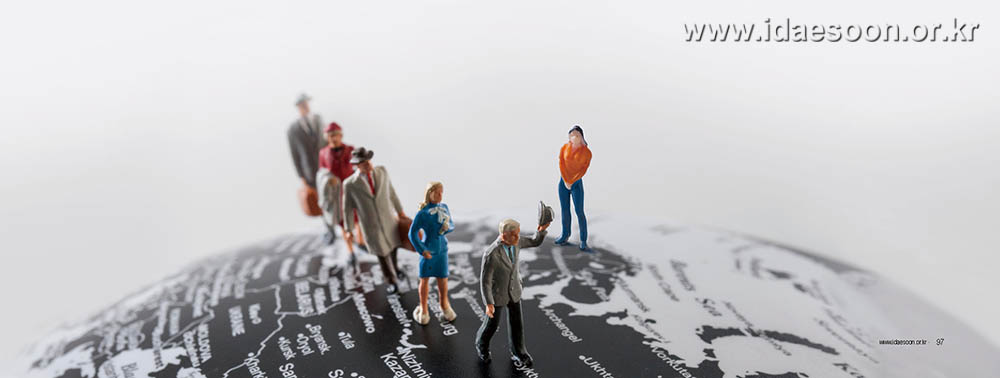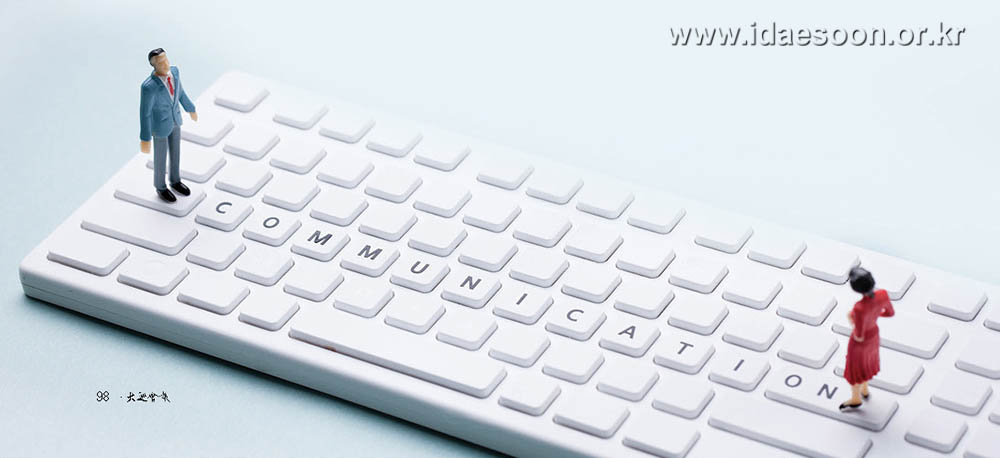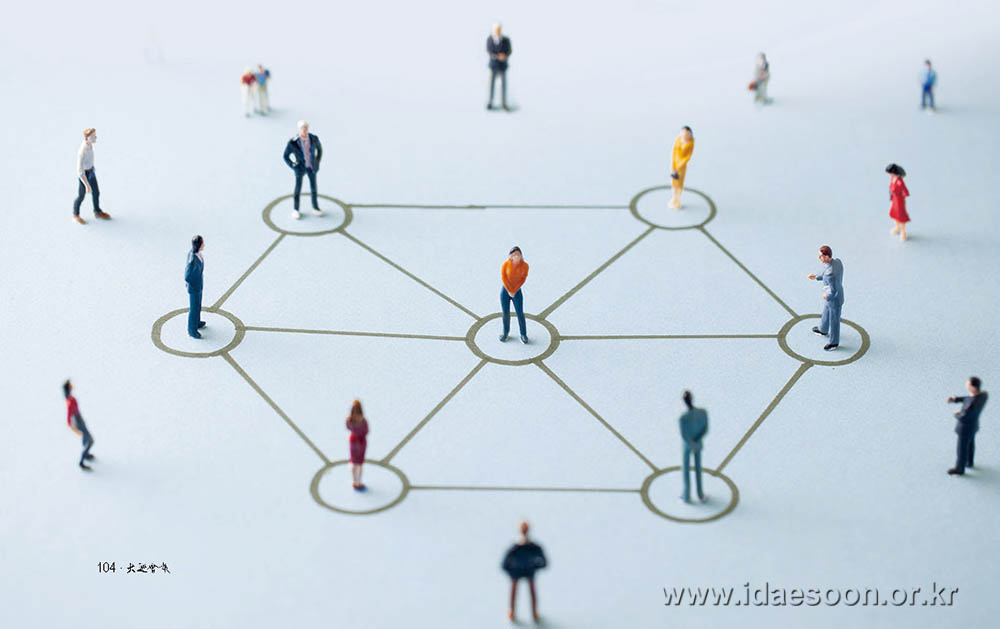 코너별 보기
코너별 보기
.jpg)
도전님 훈시 종단소식 지명 답사기 청계탑 대순칼럼 대원종 이슈터치 포토에세이 전경 속 역사인물 만화 철학과의 만남 시 대순문예 대순문예전 홍보 독자기고 나누고 싶은 이야기 Q&A 게시판 퀴즈 및 퀴즈 정답자 알립니다
나누고 싶은 이야기 : 도문소자가 되어 세계포덕을 꿈꾸다
|
도문소자가 되어 세계포덕을 꿈꾸다01
금릉 방면 선사 이아라
 저는 초등학교 때 부모님과 함께 미국으로 이민을 가게 되었습니다. 어린 나이에 영어는 처음이었고 외국에 있는 가족을 통해 미국에서 생활하게 되었습니다. 아주 어릴 때 이민 갔기 때문에 저는 1990년대의 한국이 좋은 추억으로 남아 있습니다. 논과 밭에서만 놀던 저의 어린 시절은 우물 안 개구리와 같았습니다. 그런데 미국으로 이민을 간 후, 전 세계에서 모인 다양한 사람들과 문화를 접하면서 세계인이 된 것 같았습니다.
대학생이 된 저는 한국에 10년 만에 돌아와서 1년간 교환학생으로 생활하게 되었습니다. 고고미술학과 학생이다 보니 주로 불교 사찰을 답사했고 그 과정을 통해 불교에 많은 관심을 갖게 되었습니다. 어릴 때부터 몸이 많이 아팠던 저는 전국을 돌면서 절에 들릴 때마다 108배를 하며 정성을 드렸습니다. 보살이 되어 만인을 살릴 수 있다는 불교의 이념이 너무나 아름답게 여겨졌습니다. 세상에는 너무나도 많은 고통이 보였고 이 세상을 이롭게 하는 데 조금이라도 보탬이 될 수 있다면 모든 것을 희생해도 후회가 없을 것 같았습니다. 한국에 온 지 3개월 후 저는 대순진리회에 입도하게 되었고, 여기에서 상제님의 천지공사에 대해 알게 되었습니다. 인류의 역사는 수많은 탐욕과 원한으로 인한 재앙들이 가득했고, 종교 역시 마찬가지였습니다. 이 때문에 마음 한구석에는 하늘에 대한 의문들이 많았습니다. 저에겐 상제님의 천지공사가 너무나도 감사하고 놀라운 일이었습니다. 사막에서 오아시스를 만난 듯 상제님께 감사했고 열심히 수도하기로 결심했습니다. 하지만 수도생활이 저에게는 너무나도 어려웠습니다. 저의 서구적 사고와 생활방식이 수도생활에서 잦은 갈등을 일으켰고, 한국인의 가치관과 문화가 이해되지 않았습니다. 저의 몸은 한국인이지만 저의 생각은 서양적이다 보니 이로 인해 도우들의 오해를 많이 사게 되었습니다. 한국에서는 상식이지만 저에게는 너무나도 다른 삶과 문화였기 때문입니다. 입도 후 저는 포덕을 매우 하고 싶었습니다. 그러나 저의 친구들은 모두 미국에 있었고 저는 홀로 한국에 남아 있었습니다. 그러던 중 친동생이 한국에 놀러 오게 되었고 비행기에서 내리자마자 입도치성을 모셨습니다. 한국말이 서툴렀던 동생도 도를 이해하게 되었고 같이 수도를 열심히 하게 되었습니다. 어느덧 일 년이 지나서 저는 미국으로 다시 돌아가게 되었습니다. 마음 같아서는 국적을 포기하고 한국에 눌러앉고 싶었지만 가야만 했습니다.  수도하면서 전 사실 많이 억울했습니다. 왜 한국에서만 수도를 할 수 있을까? 왜 한국인들만 치성을 모시고 수도를 할 기회가 주어지는지 의문이 들기 시작했습니다. 어떻게 보면 저는 그제야 저 자신을 서양인으로 보고 있다는 것을 깨닫게 된 것 같습니다. 제가 사랑하고 좋아하는 사람들이 한국인이 아니라는 이유로 수도를 못한다는 것은 말이 안 된다고 생각했습니다. 마음속에서 저는 세계의 다양한 사람들에게 상제님의 덕화를 알리는 도인이 되어야겠다는 다짐을 했습니다. 그 후 8년이 지났고 어느덧 내수였던 저는 중간임원이 되었습니다. 수반들은 전 세계 각국을 대표할 만큼 다국적이며 다들 열심히 수도하고 있습니다. 비록 언어와 피부색과 생각이 다르더라도 오직 그들의 마음을 보시고 상제님께서 찾아주신 것 같습니다. 수반들 중 페루계 외수 선무가 한 명 있는데 그 집안의 사람들은 조울증이 심해서 많이 괴로워하고 있었습니다. 한 예로 그의 형은 불안정한 감정변화로 인해 만취 상태에서 딸을 데리고 밤에 차를 끌고 멀리 도망치기도 했습니다. 이러한 일들로 인해 가족 간에 심각한 불화와 감정적인 충돌이 생겨 너무나 마음 아파했습니다. 그 선무는 여러 차례 100일 정성을 드렸고, 그 후 상제님의 덕화를 통해 집안사람들 모두 치성을 모시고 함께 수도하여 지금은 행복한 가정이 되었습니다. 그 선무는 자신과 같이 겁액에 시달리는 많은 사람들에게 상제님의 덕화를 전하기 위해 오늘도 최선을 다하고 있습니다. 수반들 중에는 입도치성을 모시고 조상과 관련된 종교체험을 하는 경우도 있었습니다. 그중에 한 니카라과계 내수 선무는 임신을 못해서 많은 고민에 시달렸습니다. 이러한 고민을 풀기 위해 기도와 정성 드리는 수도 과정을 그녀는 몹시 어려워했습니다. 특히 그 선무는 일상 속에서 자신을 성찰하고 심고 드리는 것을 잘 못했고, 이런 그녀에게 저는 상제님께서 강세하신 한국 방문을 권유했습니다. 그녀는 큰마음을 먹고 정성을 드리기 위해 한국에 와서, 상제님의 생가와 천지공사하신 곳들을 직접 답사하였습니다. 그 후 한국에서 기도를 모시던 중 증조할머니가 나타나 “걱정하지 말고 정성 잘 드리고 수도를 열심히 하라”고 타이르는 종교체험을 하게 되었습니다. 그녀는 눈물을 흘리며 상제님과 조상님께 감사함을 느껴 정성을 지극히 드리기로 마음먹고 미국으로 돌아왔습니다. 일상생활 속에서 어려움을 겪을 때마다 『전경』에서 많은 해답을 찾기도 하였습니다. 유럽계의 어떤 내수는 직장에서 항상 억울한 상황에 처하곤 하였습니다. 때로는 해고도 당하고, 상사에게 욕을 먹고, 동료들에게 왕따를 당해 많은 상처를 받아 힘들어했습니다. 저는 그녀에게 이와 관련된 『전경』 구절을 읽어주며 상제님께서 종도들에게 가르쳐 주신 대로 자신의 허물을 반성하도록 교화해주었습니다. 김 형렬이 출타하였다가 집에 돌아오는 길에 예수교 신자 김 중구(金重九)가 술이 만취되어 김 형렬을 붙들고 혹독하게 능욕하는지라 … “금후에 그런 일이 있거든 상대방을 원망하기에 앞서 먼저 네 몸을 살피는 것을 잊지 말지어다. 만일 허물이 네게 있을 때에는 그 허물이 다 풀릴 것이요 허물이 네게 없을 때에는 그 독기가 본처로 돌아가리라”하셨도다.(교법 2장 28절) 하지만 그녀는 좀처럼 억울한 감정을 떨쳐내지 못하고 힘들어했습니다. 그래서 저는 그 내수에게 모든 원망을 타인에게서만 찾지 말고 자기 성찰을 통해 자신의 과부족도 살펴보라고 하였습니다. 그녀는 심고를 드리면서 무의식중에 남을 미워하고 시기질투하는 감정이 자신의 마음속에 자리 잡고 있다는 것을 알게 되었습니다. 그녀는 문제의 원인을 타인으로부터 자신에게로 전환시켜 진심으로 반성하며 생활하자, 놀랍게도 모든 것이 달라지기 시작했습니다. 그 후 예전에 소원했던 동료들과의 관계도 개선되고, 상사와의 불화도 점점 사라지게 되었습니다. 그녀는 이 모든 것이 상제님의 덕화라고 생각하고 크게 감동해서 더 열심히 수도하기로 결심했습니다.
 제가 만났던 많은 밀레니얼(1980~2000사이 출생자)들은 마약중독이나 우울증과 여러 가지 정신적 고뇌에 직면하고 있었습니다. 이들은 대순진리회의 수도법방을 통해서 자신들의 겁액의 원인을 알게 되었고, 또 그토록 마음의 평화를 찾으려 했지만 결국엔 왜 폭력적으로 변하게 되었는지를 스스로 이해하게 되었습니다. 상제님의 가르침은 이러한 사람들을 크게 감동시켰을 뿐만 아니라 그들 자신에 대해 많을 것을 알게 해주었습니다. 결국 모든 깨달음의 시작은 자신을 바르게 이해하는 것으로부터 시작된다고 봅니다. 또한 이러한 원리로 우리는 상대방뿐만 아니라 우리를 둘러싸고 있는 세상을 바르게 이해할 수 있다고 봅니다. 기독교 문화에 익숙한 외국 사람들은 조상과 신명 등의 낯선 개념과 문화적인 차이로 한국 사람보다 대순사상을 이해하기 힘들어 하는 경우가 종종 있습니다. 하지만, 순수하게 상제님의 가르침을 잘 받아들이고 기도와 수련도 정성을 다해 성심껏 모십니다. 비록 선각분들과 떨어진 먼 곳에서 수도하지만 덕화를 많이 받는 것 같습니다. 수도하면서 새삼스럽게 저는 상제님께서 저의 마음을 저보다 더 잘 알고 계신다는 것을 깨닫게 되었습니다. 어릴 때 저의 꿈은 장차 세상에 이로운 일을 하는 사람이 되어 많은 사람에게 도움을 주는 삶을 사는 것이었습니다. 포덕 사업을 통해 소원을 이루게 되어서 지금은 너무나도 감사하고 또 감사합니다. 상제님께서는 부족하지만 오직 마음을 보고 저희를 쓰고자 찾아주시는 것 같습니다. 이 세상에는 이롭고 좋은 사람들로 가득 차 있다고 생각합니다. 한국뿐만 아니라 지구촌 어느 곳이든 상제님의 대순하신 진리에 귀의하고자 하는 사람들이 있다면 그들과 함께했으면 좋겠습니다.  Making a Contribution
towards Spreading Sangje’s Dao thoughout the Wolrd 02 Seonsa*, Ara Lee
Geum-reung Branch Ibegan my cultivation in 2008 during my first visit to Korea since I had immigrated to the US in 1997. My father was Buddhist and my mother was Catholic. At the time, I mainly spoke English and my Korean was only mediocre. My major was in Asian Art History. Throughout my studies, I became interested in eastern philosophy and its deep understanding of the metaphysical world. During my stay in Korea, when I was asked if I was interested in resolving the grievances affecting my family and improving our karma, I agreed to do it wholeheartedly. I wore a beautiful traditional Korean dress (Hanbok) and participated in the ‘Ipdo-chiseong’ (I was told then that it was an initiation ceremony which marks the beginning point of the resolution of our karma and enables initiates to receive blessings through their sincere dedication and by offering of food to God, the great deities of Heaven and Earth as well as my ancestors). I had been sensitive ever since I was little. I had read a lot about spiritual experiences and wondered about my past lives. Understanding the principles of energy and the universe helped me realize a lot about my past lives, my family and my karma.
As a child, I had often wondered about the world and all of its pain and suffering. Why would God not do anything about this if He existed? From the perspective of most religious teachings, I felt the world was unfair, and to be condemned for not having faith was likewise absurd. There was always something lacking; something missing which needed to be addressed. At long last, when I came to understand Sangje*’s Cheonji-gongsa (Work of Reordering the Universe), it radically opened up my view of the world. Learning about the ‘Reordering of the Universe’ helped me realize that I had been ignorant of my blessings and the grace of Heaven. From 1901 to 1909, Sangje made efforts to resolve the grievances which plagued the universe, and He opened up a path for the salvation of humankind through this resolution of grievances. I was grateful I had been given the opportunity to understand and participate in Sangje’s Cheonji-gongsa. Shortly thereafter, I began wondering why these teachings were not available in the western world. Like a pearl hidden in a mollusk shell, the wisdom of Dao has been handed down from mentor to mentee. I understood that one’s karma can stand in the way of understanding the true meanings of Dao, but I felt certain that many Westerners have connections to Dao from their previous lives. I have mainly practiced Dao in the US. Many Americans from diverse backgrounds and ancestry lines are cultivating Dao in the US. There are Europeans, Asians, Middle Easterners, Africans, South Americans and Latin Americans who cultivate and share their understanding of Dao. They come from diverse religious backgrounds ranging from Abrahamic faiths (Christianity, Judaism, and Islam) to Asian spiritual beliefs (Buddhism, Hinduism) as well as Atheists. Many seek to find peace in their mind and body, some cultivate Dao to repair their family’s karma and some seek enlightenment. In spite of differences in race and language, Dao can be universally understood because the understanding of Dao is heartfelt and develops as one ripens in the practice of Dao. In Dao, we are all united as one family under heaven. Among this large group, there is a Seonmu* of a Peruvian descent. Many of his family members suffered from bi-polar disorder. His brother, after an emotional breakdown, would often engage in drunk driving despite the risks involved and the danger this put his daughter in when she traveled with him. They suffered greatly due to the emotional trauma and stress this was causing. The Seonmu began a hundred day dedication for his family. Due to this practice, his family was able to find peace and several of his family members later participated in the Ipdo-chiseong. Many people report having felt or seen their ancestors while they participated in this ceremony. In one case, a Seonmu of Nicaraguan descent was worried because she was not able to conceive a child. Even though she exerted herself in reflection and prayer, these efforts proved unsuccessful. She knew that only a great act of dedication could allow her to resolve her karma. She thereby made up her mind to go on a pilgrimage in Korea to Sangje’s birthplace as well as the sites of His Cheonji-gongsa. Afterwards while engaged in Gido (reciting prayerful incantations) in Korea, she saw her great grandmother who encouraged her to cultivate diligently. Her great grandmother reassured her not to worry and further told her that her ancestors were all there to support and guide her through her cultivation. Sangje’s teachings are universal. Often the hardships we go through in life have answers which are contained within the passages of the Jeon-gyeong. A Naesu* of European descent had suffered greatly because of unfair circumstances at work. She lost her job numerous times and was constantly yelled at and bullied. Later on, she read Gyobeop chapter 2 verse 28 from the Jeon-gyeong which reads as follows: When Kim Hyeong-ryeol was on his way home, he crossed paths with Kim Joong-gu a Christian follower, who was excessively drunk at the time. Kim Joong-gu grabbed Kim Hyeong-ryeol and ruthlessly insulted him. Having suffered this severe insult, he returned and truthfully informed Sangje about what had transpired. Thus Sangje said to Hyeong-ryeol, “Fill a bowl with fresh water and reflect on your mistakes.” Hyeong-ryeol did as he had been ordered. After a while, Kim Joong-gu became sick and found himself upon the brink of death. Hearing this news from Hyeong-ryeol, Sangje advised him, “From now on, if this should happen again, do not hold a grudge against the other party. Instead, reflect upon yourself first. If it is your mistake, your mistakes will gain resolution. If it is not your mistake, then the poisonous energy will return to wherever it had come from originally.”
It was hard for her to accept that she had done something wrong. She had been severely wronged and greatly hurt by this pattern that kept on repeating in her life. But through understanding the way of Cheok spirits* as well as understanding how Sangje resolved the karma of His disciples, she was able to reflect deeply upon her karma and what she might have done to accidentally invite such hardship. When she reflected and prayed in her heart to Sangje, she suddenly saw herself yelling and bullying others out of jealousy in a past life. She was surprised by this and found herself able to reflect on her karma. After sincerely reflecting in this manner, her co-workers stopped bullying her and her boss stopped yelling at her. She was greatly moved and decided to cultivate herself with all her heart and mind.
Many millennials I have met have faced depression and anxiety as well as drug addiction. Often times, our various methods of cultivation have helped them understand the root of their karma and why they had sought out destructive habits while trying to find peace in their hearts. Sangje’s teachings greatly move the hearts of such people as well as deepen their understanding of themselves. I think all understanding begins with self-understanding and from this grounding we are then able to understand others and the world around us. As previously stated, many who have dedicated their hearts with sincerity have been able to overcome their addictions and greatly reflect on the pains they may have incurred in both their present and previous incarnations. After deep contemplation, many have gained profound insights regarding their past lives and family karma. Just as grievances exist for humanity as a collective, I think there are many forms of suffering that many people go through in life as individuals. Regardless of race, language and background, many have found profound understanding and gratitude through the teachings of Sangje (the Supreme Being), Doju* (the Master of Dao) as well as Dojeon* (the Leader of Daesoonjinrohe). Thriving from within this immense well of gratitude, I aim to pay forward these blessings which have optimized my life. I hope others will join me, so we can truly spread the teachings of Dao all over the world. *Sangje: an ancient name for the Supreme Being (or God) in East Asian religious traditions. Kang Jeungsan (1871~1909) is addressed as ‘Sangje-nim’ in Korean. *Seonsa: the name of a position within the fellowship system (kind of hierarchy) which designates someone as being in charge of propagation by helping and supervising Seonmus. *Seonmu: the name of a position within the fellowship system (kind of hierarchy) which designates someone as being in charge of propagation. *Naesu: the name of a position within the fellowship system (kind of hierarchy) for female general members. *Cheok spirits: Cheok is an emotional grudge that one person harbors against another. Since these emotions are the effect of grudge-harborer’s spirit, it is also known as a ‘Cheok spirit’. *Doju: the honorific title for Jo Jeongsan (1895~1958) who created the ways of cultivation as the founder of Mugeukdo, a religion from which Daesoon Jinrihoe later stemmed. He is normally addressed as ‘Doju-nim’ or ‘Okwangsangje-nim’ in Korean. *Dojeon: the honorific title for Park Wudang (1917~1996) who established Daesoon Jinrihoe. He is addressed as ‘Dojeon-nim’ in Korean. 01 이 글은 이중언어사용자(bilingual)인 필자가 한글과 영어로 작성한 수기입니다. 영어로 작성한 글은 영어권 독자들이 쉽게 이해할 수 있도록 한글본을 직역하지 않고, 그들의 문화와 언어적 관습에 맞게 서술하였습니다. 한글본과 영문본의 일부 내용에 차이가 있음을 밝힙니다. 02 The essay was originally written in English for non-Korean English speakers, whereas the Korean version which appears on the previous page was translated for Koreans. For this reason, the two essays are slightly different in terms of content and expressions. As a bilingual, the author wrote these essays to sound natural and match the cultural conventions of her two intended audiences.
|
Copyright (C) 2009 DAESOONJINRIHOE All Rights Reserved.
경기도 여주시 강천면 강천로 882 대순진리회 교무부 tel : 031-887-9301 mail : gyomubu@daesoon.org